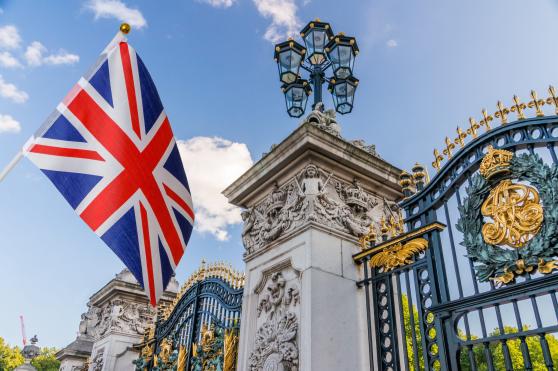Gold prices set for weekly gains on dovish Fed outlook; silver near record high
Reform UK, the right-wing populist party led by Nigel Farage, is predicted to win 13 seats in the UK’s general election, according to the final major poll conducted by Survation.
The prediction marks a significant surge for the party, driven by Farage’s return to frontline politics in the second week of the campaign.
The latest data, gathered from 1,679 British adults between Monday, July 1, and Wednesday, July 3, reflects a notable shift in voter sentiment.
Surge in Reform UK’s popularity
The rise in Reform UK’s projected seats from an earlier estimate of seven to 13 underscores the party’s growing influence. The party is also predicted to capture 17 percent of the popular vote, indicating a substantial base of support.
This shift comes in the wake of Farage’s reentry into active politics, which has energized the party’s campaign and attracted a significant number of voters.
Labour poised for historic win
According to the Survation poll, Sir Keir Starmer’s Labour Party is on track to secure a historic victory, potentially winning 475 seats. This would surpass the landslide victory achieved by Sir Tony Blair in 1997 when Labour won 418 seats.
However, it is noteworthy that this predicted landslide would come from just 37.6 percent of the vote, a smaller share than the 40 percent achieved by Jeremy Corbyn when he lost the 2017 general election.
Conservative Party’s unprecedented low
The Conservative Party is predicted to face a dramatic decline, with a projected share of only 19.9 percent of the vote.
This would translate to just 64 seats, a significant reduction from the 349 seats they held at the end of the last parliament when Prime Minister Rishi Sunak called the election.
This outcome would position the Conservatives just four seats ahead of the Liberal Democrats, who are expected to win 60 seats by making significant gains in traditional Tory heartland areas, often referred to as the “Blue Wall.”
Polling data and methodology
Survation’s predictions are based on extensive data collection, involving 34,558 respondents over several weeks. The firm applied its findings to a seat-by-seat analysis to forecast which constituencies are likely to vote for which parties.
According to Survation’s data analysts, it is “virtually certain” that the Conservative Party will achieve its lowest share of the vote in any past general election. Furthermore, the analysts claim there is a “99.9 percent” certainty that Labour will win more than 418 seats.
Not a foregone conclusion, says Sunak
Despite the dire projections for the Conservatives, Prime Minister Rishi Sunak remains optimistic, insisting that the election’s outcome is not a foregone conclusion.
On Wednesday, Sunak told ITV’s This Morning, “We just saw some analysis which showed that just 130,000 people can make the difference in this election. So, everyone watching who thinks, ‘oh, this is all a foregone conclusion’, it’s not.”
Labour’s call for change
Labour leader Sir Keir Starmer echoed the need for voter participation, stating,
I say if you want change, you have to vote for it. I want people to be part of the change.
Starmer’s appeal underscores Labour’s strategy to mobilize voters who are eager for a shift in government after 14 years of Conservative rule.
Election day expectations
As the United Kingdom heads to the polls on July 4, the political landscape appears poised for a significant shift. The final results, expected in the early hours of July 5, will determine whether the predicted outcomes materialize.
With Labour aiming for a historic victory, Reform UK gaining ground, and the Conservatives facing an unprecedented low, the election’s results could reshape the UK’s political dynamics for years to come.
The final major poll ahead of the 2024 UK general election presents a dramatic picture of potential outcomes.
Reform UK’s surge under Nigel Farage’s leadership highlights a shift in voter sentiment, while Labour’s projected landslide victory reflects widespread desire for change.
The Conservative Party, grappling with historically low support, faces significant challenges.
As voters prepare to cast their ballots, the stakes are high, and the political future of the UK hangs in the balance.
